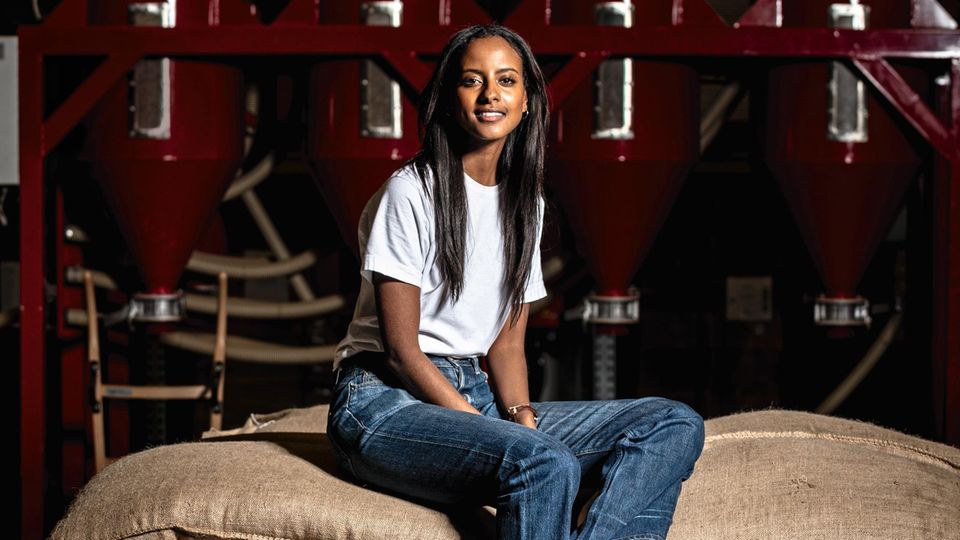The Supply Chain Due Diligence Act requires companies to respect social standards in the production and import of their goods. An annoying burden that makes life difficult for companies – or just an opportunity? Elisabeth Fröhlich, Professor for Strategic and Sustainable Procurement, explains.
By Jan Rubel
Since the beginning of the year there has been a “Supply Chain Due Diligence Act”. What exactly does the word monster mean?
This means that as an entrepreneur I have to worry about my supply chains. I am selling an end product, but I need various preliminary products and services to manufacture it. I buy them here and there – this creates a chain of deliveries. It begins with the working conditions of the cocoa farmer and continues through to the chocolate bar in the supermarket.
What exactly will companies have to worry about in the future?
That nothing happens along these delivery routes that violates human rights – such as starvation wages, child labor, corruption. Actually, all this is in the very own interest of every company. Because she has extreme advantages if she is attentive. We now have enough empirical evidence that a resilient supply chain only works if I pay attention to human rights.
Elisabeth Fröhlich is Professor of Strategic and Sustainable Procurement at the CBS International Business School and Chair of the Advisory Board of the JARO Institute for Sustainability and Digitization
© Private
What is a resilient supply chain?
One that works by being less risky. It is more resilient to all sorts of disruptions such as transport disruptions due to floods or heat waves. Or if many employees are absent, as in China during the pandemic, entire plants are at a standstill or transport chains are paralyzed because nobody can drive a truck anymore.
Do you already see noticeable consequences of the new law?
Entire industries and sectors are trying to adapt to the new legal situation. For me, it shows the charming consequence of this law: Procurers – i.e. buyers in the company – and suppliers question the supply chain step by step and try to solve problems together. In the long term, this will be a decisive competitive advantage for companies, especially compared to American or Asian companies. With this law, Europe once again has the chance to get ahead economically, because meeting the legal requirements is nothing more than a worthwhile investment in the future of one’s own company
What makes you so optimistic? So far, international competition has had one comparison criterion, and that is the price.
You have to see it differently. Sustainability is more than a competitive factor, it is a “must”. The sustainable transformation of a company, which must go hand in hand with a corresponding digitization strategy, is necessary, otherwise we cannot achieve elementary goals. So far, only 12 percent of the UN Sustainable Development Goals for 2030 have been achieved. If a company says: I don’t give a damn about sustainability, I’m ignoring the law, there will be penalties – but that’s not the company’s only problem. If nothing changes, we all face completely different problems: Ruining the planet we live on makes no economic sense either. Large parts of the world are currently facing the next famine. There are regions where you can no longer grow anything and where you can no longer live due to the lack of water there. We’re headed for disaster.
Why should a screw manufacturer in Germany see working conditions in Africa as a problem?
Because, for example, we are faced with a wave of refugees that is worse than anything we have experienced before. And its screws are made of steel – one of the worst industries in terms of carbon footprint. At some point, such companies will no longer be able to produce anything if they do not position themselves more sustainably. Sooner or later, no one can escape this change. What can you still sell if the customer has no more money, see energy crisis? A clever company is already wondering where its own added value lies in the supply chain law.
How does that show?
It’s about sustainability. With the Corona pandemic, we saw what happens when a company does not recognize the risks in its supply chains. If we had had the right strategy back then, we would not have reacted so panicked and terminated almost all supply contracts. The federal government pointed out even then that companies should take care of it – but they didn’t do it. Hence the law.
The law currently applies to companies with more than 3,000 employees. Doesn’t this mean that they will shift their responsibility to smaller suppliers?
No. The law requires suppliers to be trained. It leaves little leeway for big companies to offload their responsibilities and let small companies starve. On the contrary: it is an opportunity for real partnership. Because it is based on competence. This is also in the interests of the company, I call it “helping people to help themselves”. This also makes the strategic procurement process much easier, because I train the suppliers to tackle and solve problems themselves.
What happens when a company plays deaf? Does it have to pay a fine?
Nothing is demanded of companies that cannot be met financially or in terms of personnel. There will probably be first reminders. But the process hasn’t got that far yet, it’s just getting started. Of course, in the end there is a risk of a fine, depending on the turnover. But that is not the point. Those who don’t look at their supply chains will not survive. To put it simply, it will be gone in a few years. I no longer get young people enthusiastic about my company if I don’t have a vision of sustainability. I also no longer get any investment partners if I’m not pursuing specific sustainability goals. My reputation is suffering, these are just the main effects. The supply chain law only offers assistance so that my company develops in the right direction.
So human rights are an economic added value?
If you introduce new technologies, this initially involves investments. But being more sustainable saves a lot of money. According to the Economic Forum, I can achieve higher sales and save up to 16 percent in the transport sector. And I buy on average ten to 25 percent cheaper. Sustainability is an investment that always pays off.
Are there many human rights violations and many environmental violations in German supply chains?
Yes, unfortunately. The biggest problem is that the gap between the globe’s south and north is widening. I miss the holistic idea when it comes to companies: the highest human right is the right to a good life. This not only has to do with fair wages – they are given too much priority. As a cocoa farmer in Côte d’Ivoire, I would feel quite alone if I was paid a fair wage but had to leave my homeland because there was no more water. The holistic approach brings ecological and social issues into balance, and companies have to align themselves with this
Is Germany alone internationally with these new guidelines?
No, some countries in Europe developed similar guidelines a long time ago – such as France, the Netherlands and Great Britain.
But many companies are not happy with this law.
I often experience something like this during my lectures in business. First of all, there is a lot of whining: All this is not feasible. And when I ask questions, they realize: Oh, we’re already doing quite a bit. Almost every company that I am in contact with initially proves to be “unfit” for the supply chain law, but none fails. They quickly notice that they can position themselves better and generate real added value for their company


